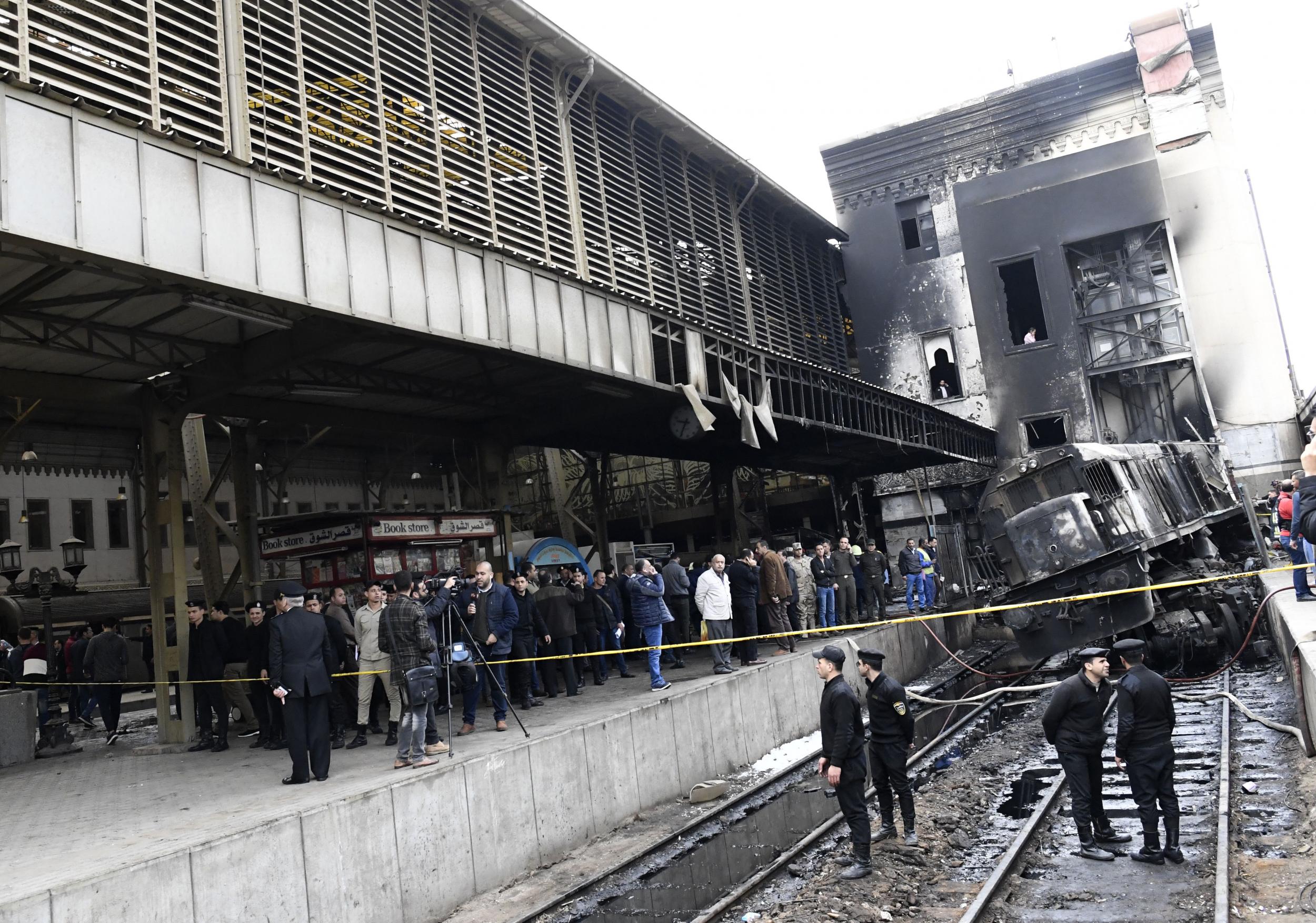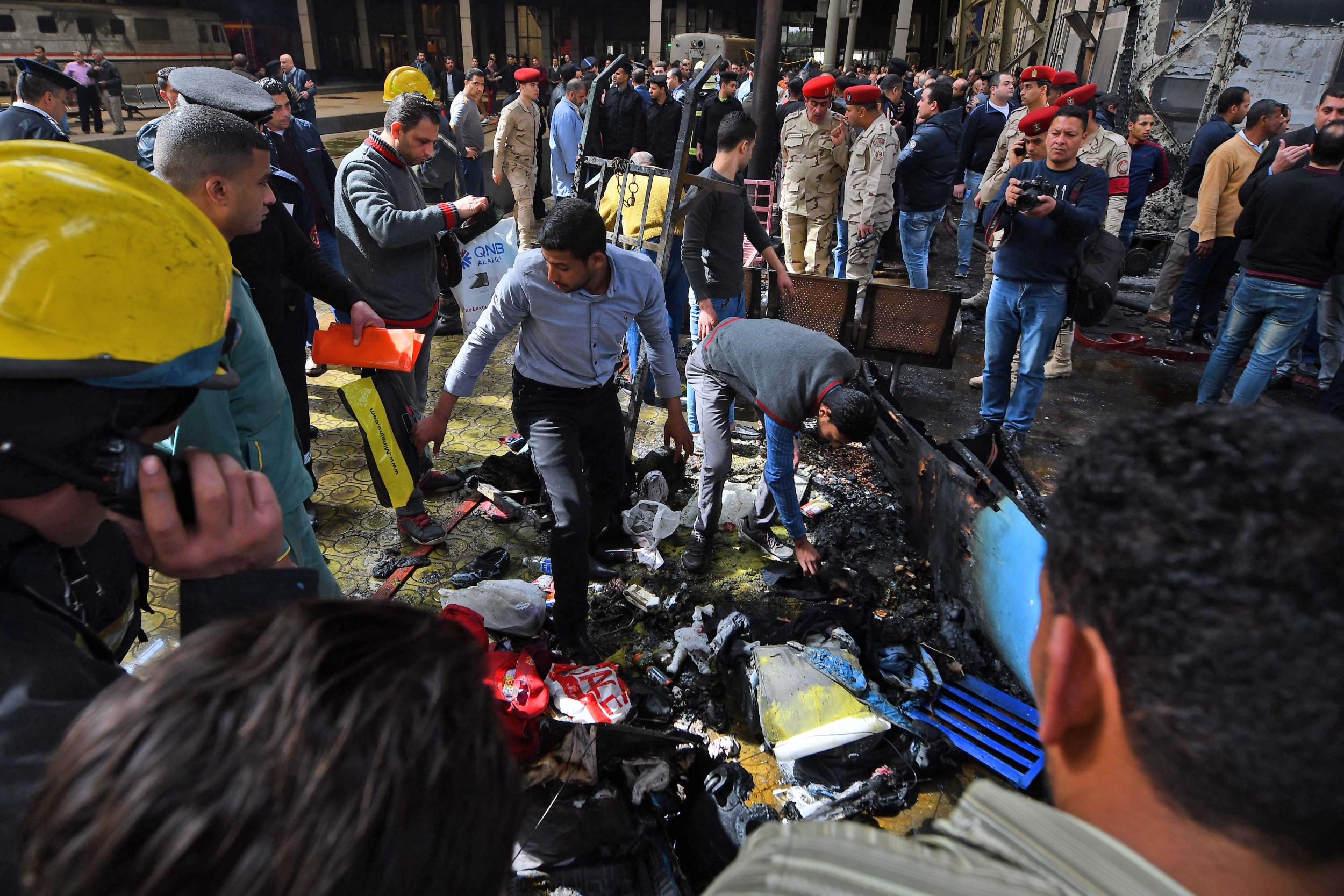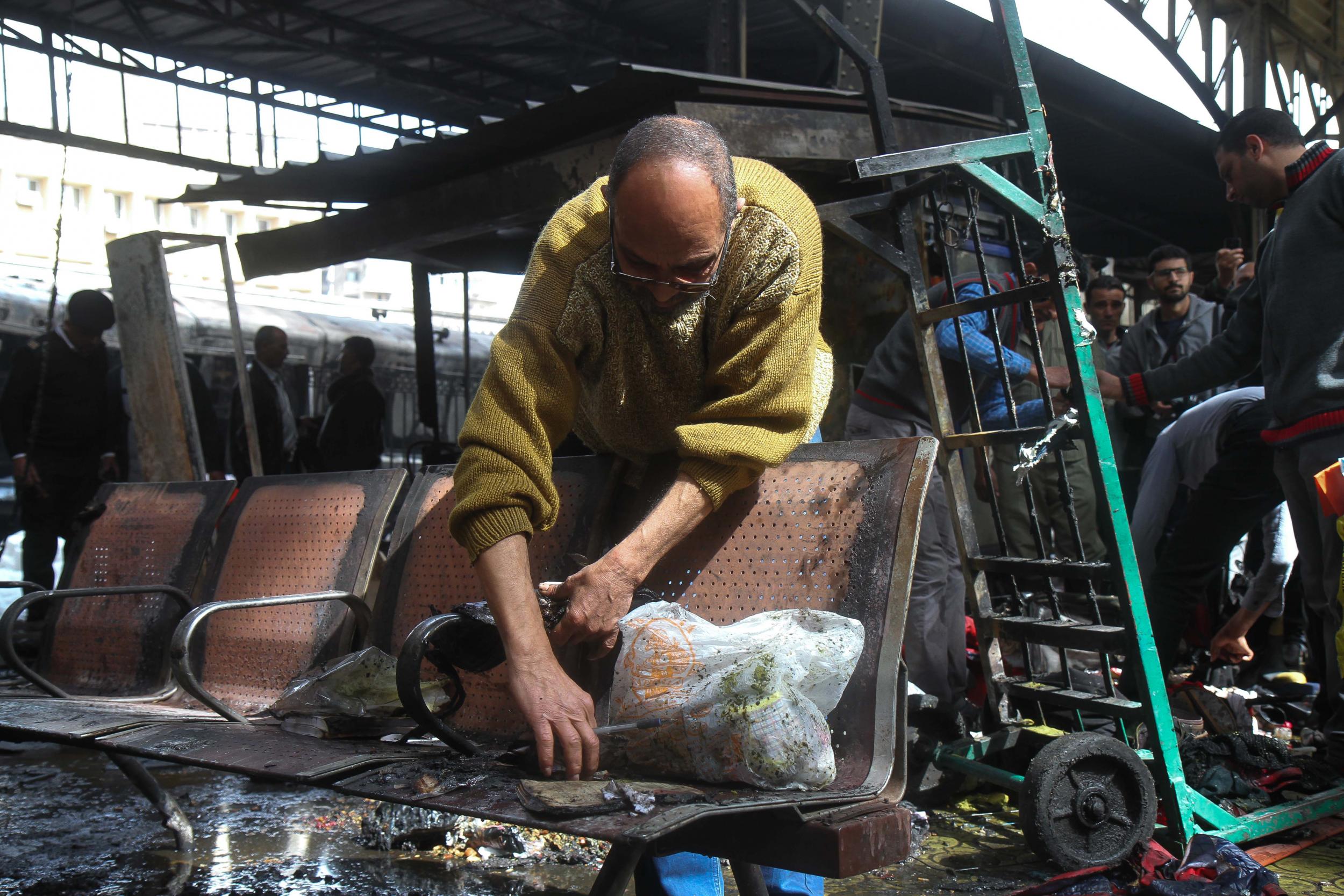Cairo train fire: At least 25 dead and dozens injured in disaster at Egypt’s main station
A row between train conductors was behind the deadly incident which saw an unmanned railcar collide with barriers at Ramses station, Egypt’s main railway hub
Your support helps us to tell the story
From reproductive rights to climate change to Big Tech, The Independent is on the ground when the story is developing. Whether it's investigating the financials of Elon Musk's pro-Trump PAC or producing our latest documentary, 'The A Word', which shines a light on the American women fighting for reproductive rights, we know how important it is to parse out the facts from the messaging.
At such a critical moment in US history, we need reporters on the ground. Your donation allows us to keep sending journalists to speak to both sides of the story.
The Independent is trusted by Americans across the entire political spectrum. And unlike many other quality news outlets, we choose not to lock Americans out of our reporting and analysis with paywalls. We believe quality journalism should be available to everyone, paid for by those who can afford it.
Your support makes all the difference.At least 25 people have been killed and dozens injured in an explosion at Egypt’s main railway station, after an unmanned speeding railcar crashed into a barrier, setting a fuel tank on fire.
Charred bodies littered the burning platforms and tracks of Ramses station, in central Cairo, which was choked in heavy black smoke and flames on Wednesday morning.
Videos shared online showed survivors with severe burns lying in shock on the ground while others staggered in the background engulfed in flames. In CCTV footage, also shared online, people are filmed trying to come to the rescue of those on fire with blankets and water.
Egyptian state TV reported that at least 25 had been killed and 40 wounded in the blast. However, Mohammed Said, the head of the Cairo Railroad hospital, warned that the toll is expected to rise. Egypt's top prosecutor General Nabil Sadek later said investigators found that the crash had been caused by a fight between two train conductors.

Ahmed Ibrahim, a jewellery salesman at the scene, said he was on his way to work when he heard a loud explosion.
"I ran to see a lot of people injured. I had to carry a young girl with my own hands," he said, apparently still in shock.
"I saw bodies cut in half. I'd never seen that ... I never thought I'd ever touch dead bodies."
Mina Ghaly, another eyewitness said: “Everyone started running but a lot of people died after the locomotive exploded.”
“I saw at least nine corpses lying on the ground, charred.”
Egypt’s prime minister, Mostafa Madbouly, its minister of transport, Hesham Arafat, and a team of investigators attended the scene to inspect the burnt remains of the train, which was photographed leaning on its side and embedded into the barriers on platform six of the usually packed station. Mr Madbouly said anyone found responsible would be held to account.
Mr Arafat later handed in his resignation over the deadly incident.
Mr Sadek ordered an investigation into the incident and Wednesday issued a statement concluding that a fight between two railway workers was to blame.
According to investigators, one conductor exited his railcar without switching the engine off, to fight with a colleague whose own truck was blocking the way. When that truck reversed freeing the trapped locomotive, it gathered speed and hit a concrete and metal barrier exploding.
CCTV footage shot outside of the station showed the unmanned truck hurtling towards the station supporting the conclusion. Footage from within the station showed the truck hit the end of the platform, engulfing the train and nearby platform in flames.
"The driver left the railcar without taking any measures to brake it," General Sadek said in a statement. He added that the driver was under interrogation and that the investigation was continuing.
Named by local media as Alaa Fathy, the driver later appeared in a televised interview with privately-owned network ONTV where he denied responsibility for the crash.
"I didn't expect this to happen as I don't know the future. Another [truck] hit mine and I stepped off to argue with the other driver,” he told the host.
“I put the truck into reverse, but the faulty transmission is loose, so it's possible it may have switched back to drive on its own,” he continued.
He claimed he did not realise he caused a disaster and so went home.
“I called the control and told them what happened. I was going home and would have returned to work tomorrow as usual. I thought I may get a warning or a salary cut as a punishment. I didn't expect all of this to happen,” he added.
Egypt’s antiquated transport network has a long history of deadly crashes.
Hours after Wednesday's incident, one person was killed and six others injured in another train accident in El-Alamein, near the northern city of Alexandria, according state media.

The crash on Wednesday was the deadliest in Egypt since August 2017 when two passenger trains collided near Alexandria, killing more than 40 people and injuring scores.
Last February a crash in the northern province of Beheira killed at least 15 people and injured dozens more.
Egyptians have long criticised the authorities for the country's crumbling transport network.
In a bid to improve trains, Egypt had signed a deal in 2018 worth one billion euros ($1.14 billion) with a Russian-Hungarian consortium to deliver passenger coaches to the country.

The previous year it signed a $575 million deal with General Electric to purchase 100 locomotives. Despite this, statistics show that the number of accidents is soaring.
The latest figures released by the state’s statistics agency showed that there were 1,793 train accidents in 2017, up from 1,249 in 2016.
The deadliest accident on Egypt's railways was in 2002 when 373 people died in a fire that ripped through a crowded train south of the capital.

Join our commenting forum
Join thought-provoking conversations, follow other Independent readers and see their replies
Comments